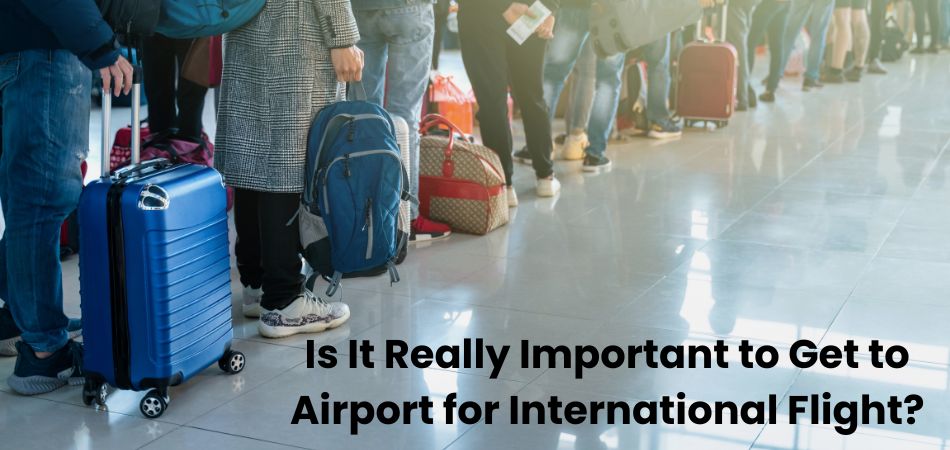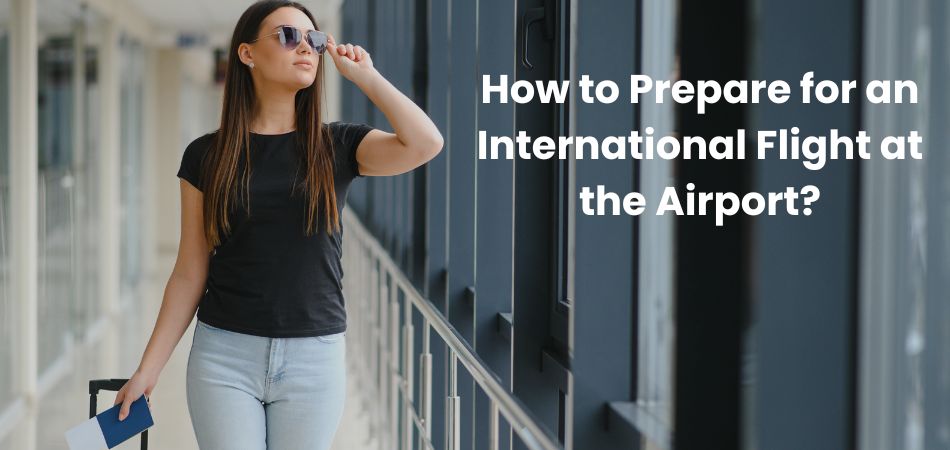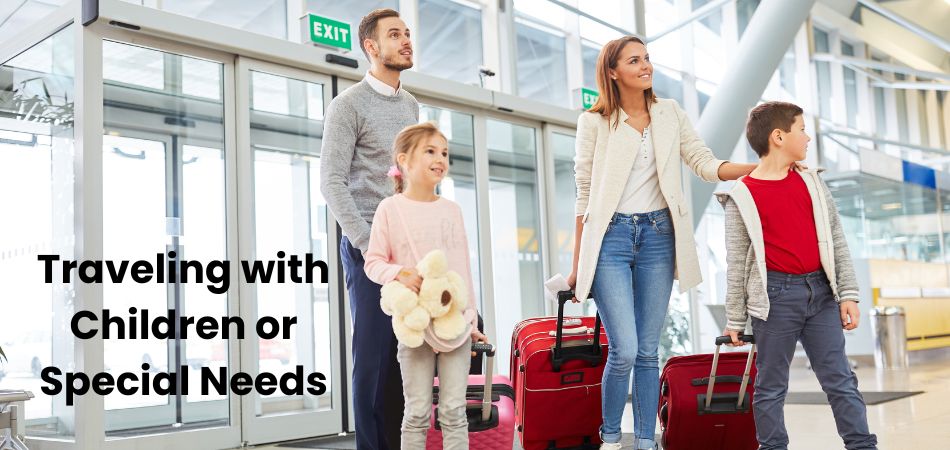Traveling internationally can be both exciting and a little nerve-wracking, especially when it comes to making sure you don’t miss your flight. One of the most common questions travelers have is: How early to get to airport for international flight?
Arrive at the airport at least three hours before an international flight, factoring in airline policies, destination requirements, and airport size to ensure a smooth and stress-free journey.
This guide will help you plan your timing, avoid unnecessary stress, and maximize your travel day. Whether you’re a seasoned globetrotter or a first-time international traveler, knowing when to arrive makes all the difference.
Is It Really Important to Get to Airport for International Flight?
The best way to ensure smooth international travel is to get to the airport on time. Arriving on time can save you from missed flights and unnecessary stress, from clearing security checks to accounting for potential delays. Let’s explore why punctuality matters and what factors make it so critical.

Security Checks Take Longer for International Flights
International flights often have more stringent security protocols, requiring extra time for screening. You may need to go through additional checks, such as passport verification and customs pre-clearance, depending on your destination. Arriving early ensures you have ample time to clear these steps without rushing.
Airlines Have Stricter Check-In Deadlines for International Flights
Most airlines close check-in counters earlier for international flights compared to domestic ones. This is because additional processing time is needed for passports, visas, and baggage destined for customs inspection. Missing this window could mean losing your seat, even if you’re at the airport.
Boarding Times for International Flights Are Longer
Boarding typically begins earlier for international flights, sometimes up to an hour before departure. Airlines factor in extra time to ensure passengers’ documents are verified and larger aircraft are boarded efficiently. Being on time allows you to board smoothly without worrying about being left behind.
Unexpected Delays Are More Likely to Occur
Large airports handling international flights are prone to delays due to crowds, flight congestion, and stricter regulations. Arriving early gives you a buffer to handle unexpected situations like long lines or gate changes. It’s better to wait at your gate than risk missing your flight entirely.
Your Destination May Require Additional Documentation
Certain destinations require extra checks for visas, health certificates, or customs declarations. These steps can add significant time at check-in or boarding, especially if the documentation isn’t ready. Arriving early ensures you can address any last-minute issues without panicking.
How Early to Get to Airport for International Flight?
If you’re flying internationally, the check-in and security process can be more time-consuming than for domestic travel, so arriving earlier is essential. Many airlines recommend getting to the airport three hours before your scheduled departure time for an international flight.

However, the exact timing can vary based on several factors, such as your destination, airline policies, and airport size. Arriving too early may leave you with unnecessary waiting time, but arriving too late could result in missed flights or added stress.
Here are some tips to help you decide how early to arrive at the airport for your next international flight.
Airline Policies and Guidelines
Each airline has its own recommendations for when passengers should arrive before an international flight. Many suggest checking in at least three hours prior, but some may require more time, especially for long-haul flights. Always verify your airline’s guidelines to ensure you meet their specific requirements.
Size and Traffic at the Departure Airport
The size of the airport and its daily passenger traffic can significantly impact how early you should arrive. Major international hubs often have longer security lines and busier terminals, requiring extra time to navigate. Smaller airports may be more efficient, but it’s still wise to allow ample time for unexpected delays.
Destination-Specific Requirements
Some destinations require additional checks, such as visas, customs forms, or health documentation. These extra steps can add considerable time to the check-in and boarding process. Researching your destination’s entry requirements in advance can help you plan your airport arrival time more effectively.
Travel Season and Time of Day
Peak travel seasons, such as holidays or summer vacations, often mean busier airports and longer lines. Similarly, flights during early mornings or evenings may experience more congestion. Arriving earlier during these periods can help you avoid rushing or missing critical steps in the process.
Baggage Check and Security Screening
Checking luggage for an international flight usually takes longer, as bags often go through additional security screening. Similarly, airport security lines can be longer due to stricter regulations for international travelers. Giving yourself enough time for these procedures ensures a smoother travel experience.
Should You Arrive Earlier for Non-Direct International Flights?
For non-direct international flights, arriving at the airport earlier is often a smart choice to ensure a smooth journey. Connecting flights add complexity to your travel plans, as they require additional coordination between airlines and layover logistics. Arriving with extra time gives you a buffer to handle any unexpected issues, such as long lines at check-in, baggage drop, or security screening.
Non-direct flights often involve more stringent requirements for luggage handling and boarding, especially if your layover includes switching airlines or traveling through a country with strict customs protocols. Some airlines may also require passengers on connecting flights to recheck their luggage or pass through security again during layovers. Arriving early ensures you have time to clarify these details with airline staff, avoiding confusion or missed connections later in your journey.
Additionally, flight delays on your initial leg can significantly impact your connecting flight. By arriving early, you give yourself a chance to discuss potential contingencies with airline representatives if delays seem likely. This proactive approach can minimize disruptions and ensure you reach your final destination as planned.
How to Prepare for an International Flight at the Airport?
An international flight preparation doesn’t end with arriving on time; there are other steps you can take to make it easier. From organizing your documents to staying comfortable during your wait, being prepared can reduce stress and make your journey more enjoyable. Let’s explore some practical tips to help you feel ready and relaxed before takeoff.

1. Organize Your Travel Documents
Ensure your passport, boarding pass, and any required visas or health certificates are easily accessible. Keep them in a secure but convenient spot, such as a travel wallet, to avoid fumbling through your bags. Double-check your documents before approaching the check-in counter or boarding gate to avoid last-minute delays.
2. Familiarize Yourself with the Airport Layout
Take a moment to review the airport map, either online or through the terminal’s signage. Knowing where key areas like security checkpoints, gates, and restrooms are located can save you valuable time. This is especially helpful in large international airports, where distances between terminals can be significant.
3. Plan for Meals and Refreshments
Airport food options vary widely, so consider grabbing a meal or snack before your flight, especially for long-haul travel. Check the availability of restaurants near your gate and factor in wait times during busy periods. Staying hydrated is equally important—pick up a water bottle after clearing security to avoid dehydration during your journey.
4. Charge Your Devices and Check Connectivity
International travel often involves long hours in transit, so make sure your devices are fully charged. Many airports provide charging stations or outlets near seating areas, so take advantage of these while waiting. Download essential apps, music, or movies beforehand, and confirm you have the correct adapters for your destination if needed.
5. Stay Comfortable While You Wait
International flights often involve extended waits, so dress in layers and comfortable clothing. Look for quiet areas or airport lounges where you can relax before boarding. If you have extra time, consider stretching or walking around the terminal to keep your body relaxed and ready for the long flight ahead.
What Are the Risks of Arriving Too Late or Too Early?
Arriving too late or too early at the airport for an international flight can lead to different challenges, both of which can disrupt your travel experience. If you arrive too late, the risk of missing your flight is significant, especially with longer check-in lines, security checks, and potential passport or visa issues.
Many airlines close their check-in counters well before the scheduled departure time, leaving you with little recourse if you miss that window. Missing your flight can result in additional costs, rescheduling hassles, and delayed travel plans.
On the other hand, arriving too early can lead to unnecessary stress and fatigue, especially during long waits in crowded airport terminals. Security and check-in counters may not even be open if you arrive excessively early, leaving you with little to do but wait. Spending too much time in the airport can also make the travel experience feel longer and more draining, which can be particularly taxing for long-haul international flights.
Finding the right balance is key. Arriving with enough time to handle check-in, security, and boarding processes comfortably ensures a smooth and efficient experience. Proper timing minimizes stress, reduces waiting time, and allows you to focus on preparing for your flight without unnecessary pressure.
Does Traveling with Children or Special Needs Require Extra Time?
Traveling with children or individuals with special needs requires careful planning to ensure a smooth experience at the airport. While the basic steps of international travel are the same, additional considerations can add time to your schedule.
From finding family-friendly services to addressing accessibility requirements, early preparation is key. In particular, long flights with kids require extra time to manage comfort and logistics. Here are some tips on how to plan effectively for travel in these situations.

1. Using Family or Accessibility Check-In Counters
Most airlines offer dedicated check-in counters for families and passengers with special needs, which save time. However, these counters may still have queues during busy periods, so allow extra time to navigate this process. Informing airline staff about specific needs in advance can also help streamline check-in.
2. Managing Security with Children or Mobility Devices
Security checks can take longer when traveling with children or mobility aids, as extra screening is often required. Strollers, car seats, or wheelchairs may need to go through separate inspections, adding to the wait time. Being patient and organized can help you handle this step efficiently.
3. Accessing Special Services or Accommodations
Airports often provide services like wheelchair assistance, sensory-friendly rooms, or priority boarding for families and individuals with special needs. These services can make your journey more comfortable but may require extra time to arrange. Arriving early ensures you can access these accommodations without feeling rushed.
4. Pack and Prepare for Comfort
Packing for children or passengers with special needs may involve additional items, such as medications, snacks, or comfort objects. Keeping these essentials accessible can save time during security checks or on the plane. Preparing for unexpected delays with extras like diapers, wipes, or entertainment is particularly helpful for long flights with kids.
5. Handling Boarding and Settling In
Boarding the plane with children or special needs travelers often takes longer, as you may need to organize seats, store equipment, or address special requirements. Many airlines allow early boarding for families and passengers needing assistance, which can make this process easier. Taking advantage of this time ensures everyone is settled and ready for the journey.
FAQs About Preparing for an International Flight
Many questions arise when preparing for an international flight, especially if you are a less frequent traveler. From managing your carry-on items to knowing airport facilities, it helps to be well-informed. Here are some frequently asked questions and their answers to make your travel experience smoother.
1. What Items Are Not Allowed in Carry-On Luggage?
Prohibited items in carry-on luggage include liquids over 100ml, sharp objects, and flammable materials. Check your airline’s rules for specific restrictions, as regulations may vary by country. Packing your bag with security in mind will save time and hassle during screening.
2. Can You Sleep at the Airport If You Arrive Early?
Many airports allow passengers to rest in designated areas or lounges if arriving early. Some airports even have sleeping pods or quiet zones designed for comfort during long layovers or early arrivals. It’s a good idea to research your departure airport’s amenities in advance.
3. What Happens If Your Flight Is Delayed After You’ve Checked In?
If your flight is delayed, airlines usually provide updates and may offer compensation, such as meal vouchers, depending on the delay length. Stay near the departure gate and listen for announcements regarding your flight status. Keeping your travel essentials handy ensures you’re prepared for unexpected wait times.
4. Is It Safe to Leave Your Luggage Unattended at the Airport?
Leaving luggage unattended at the airport is not safe and may result in security confiscating your belongings. Always keep your bags with you to avoid theft or unnecessary complications. Using a travel lock or tagging your luggage can add extra security and peace of mind.
5. Are There Facilities to Freshen Up at the Airport Before a Long Flight?
Yes, many international airports offer shower facilities, either in lounges or pay-per-use areas. These are especially useful for travelers on long-haul flights or those with extended layovers. Checking the airport’s website or asking information desks can help you locate these services quickly.
Final Notes
The preparation for an international flight must be done carefully to ensure a smooth and stress-free journey. From organizing your documents to navigating airport facilities, every step plays a role in getting you to your destination efficiently.
One of the most crucial aspects is deciding how early to get to airport for international flight, as timing can make all the difference in avoiding last-minute stress. By considering factors like your airline, destination, and personal needs, you can confidently arrive with enough time to spare. With the right preparation, your travel experience can start on a positive note.
